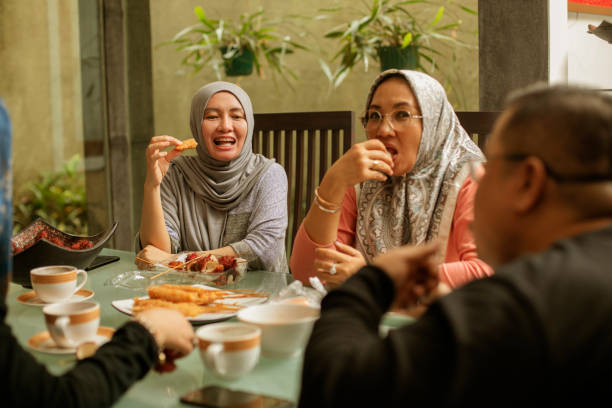
Food has always been known to bring people together, but is it surprising when some families don't regularly sit down for meals as one unit?
In Malaysia, where diverse households and schedules exist, netizens are sharing their thoughts on the topic, shedding light on the different dining etiquettes practised within their families.

For many, individual schedules and varying routines have led to separate mealtimes at home. While some may find this unconventional, others see it as a practical solution to accommodate busy lives and diverse preferences.
Every family has their problems but one thing I'm thankful for is that everytime I go home to my parents', we eat together. All meals.
— Nazeera Nasir (@nzranasr) July 25, 2023
I kinda shocked to hear about some families just makan at their own time eventhough they're under the same roof. https://t.co/lLFNiYaiD4
One individual shared a TikTok video snapshot of a couple having a meal on the floor, stating that they only had enough money for a home but not for furniture. This sparked a conversation about how families adapt and prioritize their meals differently.
In the online discussion, netizens refrained from judging each other's choices, recognizing that every family has its unique circumstances. Some recalled their own experiences, sharing anecdotes of eating at friends' houses where mealtime practices differed significantly from their own.

Despite the differences, the shared sentiment was one of appreciation for the moments when families did come together for special occasions or during Ramadan.
These occasions hold particular significance as they provide an opportunity to strengthen family bonds and enjoy meals in each other's company.


The comments also highlighted the significance of communication and mutual understanding within families.
While some prefer eating together as a symbol of togetherness, others appreciate the freedom of enjoying meals alone with added table space and quicker eating times.


Ultimately, the discussion underscored the importance of accepting diverse family dynamics and recognizing that what works for one household may not necessarily apply to another. Mealtime traditions, like any other family practice, can vary widely and should be respected.
In conclusion, while the idea of sharing meals as a family is cherished by many, the reality is that different families adopt different dining habits based on their individual circumstances and preferences. What remains essential is the love and respect that family members share, regardless of the dining practices they choose to embrace.




